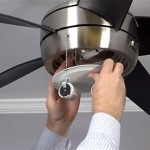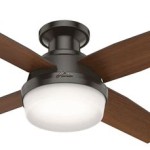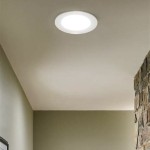The Art of Lighting Design: Essential Aspects for Kitchen Ceilings
Proper lighting is crucial to creating a functional and inviting kitchen. When designing the lighting for your kitchen ceiling, consider several essential aspects to ensure both aesthetics and functionality:
### 1. Task Lighting: Illuminating Work ZonesTask lighting is essential for providing adequate light for specific tasks, such as cooking, chopping, and cleaning. Pendant lights, under-cabinet lights, and recessed lights can be strategically placed over work surfaces to provide concentrated illumination where needed.
### 2. Ambient Lighting: General IlluminationAmbient lighting provides overall illumination throughout the kitchen, creating a comfortable and inviting ambiance. Chandeliers, recessed lights, and cove lighting can evenly distribute light, ensuring that the entire kitchen is well-lit.
### 3. Accent Lighting: Highlighting Focal PointsAccent lighting draws attention to specific areas or features within the kitchen. Track lighting, spotlights, and wall-mounted fixtures can be used to highlight artwork, open shelves, or kitchen islands, adding depth and interest to the space.
### 4. Natural Light Integration: Daylight HarvestingNatural light is the most efficient and cost-effective way to illuminate your kitchen. Maximize the use of natural light by positioning skylights, windows, and French doors to allow sunlight to penetrate the space. This can reduce the need for artificial lighting during the day.
### 5. Light Color and Temperature: Ambiance and FunctionalityThe color temperature of light can significantly impact the atmosphere of your kitchen. Warm white light (3000K-4000K) creates a warm and inviting ambiance, while cool white light (5000K-6500K) provides a more energizing and efficient work environment.
### 6. Fixture Types and Styles: Aesthetic ChoicesThe type and style of lighting fixtures you choose can complement the overall design of your kitchen. Pendant lights can add a touch of elegance, while recessed lights provide a sleek and minimalist look. Track lighting offers flexibility and functionality, and chandeliers can make a grand statement.
### 7. Control and Automation: Convenience and EfficiencyModern lighting systems can incorporate smart controls and automation features. Dimmers allow you to adjust the light intensity to suit your needs, while motion sensors can automatically turn on lights when you enter the kitchen. Smart home integration enables voice control and remote access, enhancing convenience.
### Conclusion:Designing the lighting for your kitchen ceiling requires careful consideration of multiple factors. By integrating task, ambient, and accent lighting, utilizing natural light, selecting appropriate light color and fixtures, and incorporating control and automation features, you can create a well-lit, functional, and aesthetically pleasing kitchen that meets your every need.

Stunning Kitchen Lighting Designs To Transform Into A Designer Space

Kitchen Ceiling Lighting Ideas For Your Home Designcafe

How To Create A Beautiful Effective Kitchen Lighting Design Bob Vila

Kitchen Ceiling Lighting Ideas For Your Home Designcafe

Creative Lighting Ideas For A Brighter Space

25 Best Kitchen Lighting Ideas 2024 Moonbeam Lightingmoonbeam Blog

20 Impressive Kitchen Lighting Ideas To Perk Up Your Home The Fancy Place

5 Ways To Make Your Kitchen Ceiling A Design Feature Concept Ii

Kitchen Ceiling Lighting Ideas For Your Home Designcafe

Kitchen Lighting Ideas The Home Depot
Related Posts








